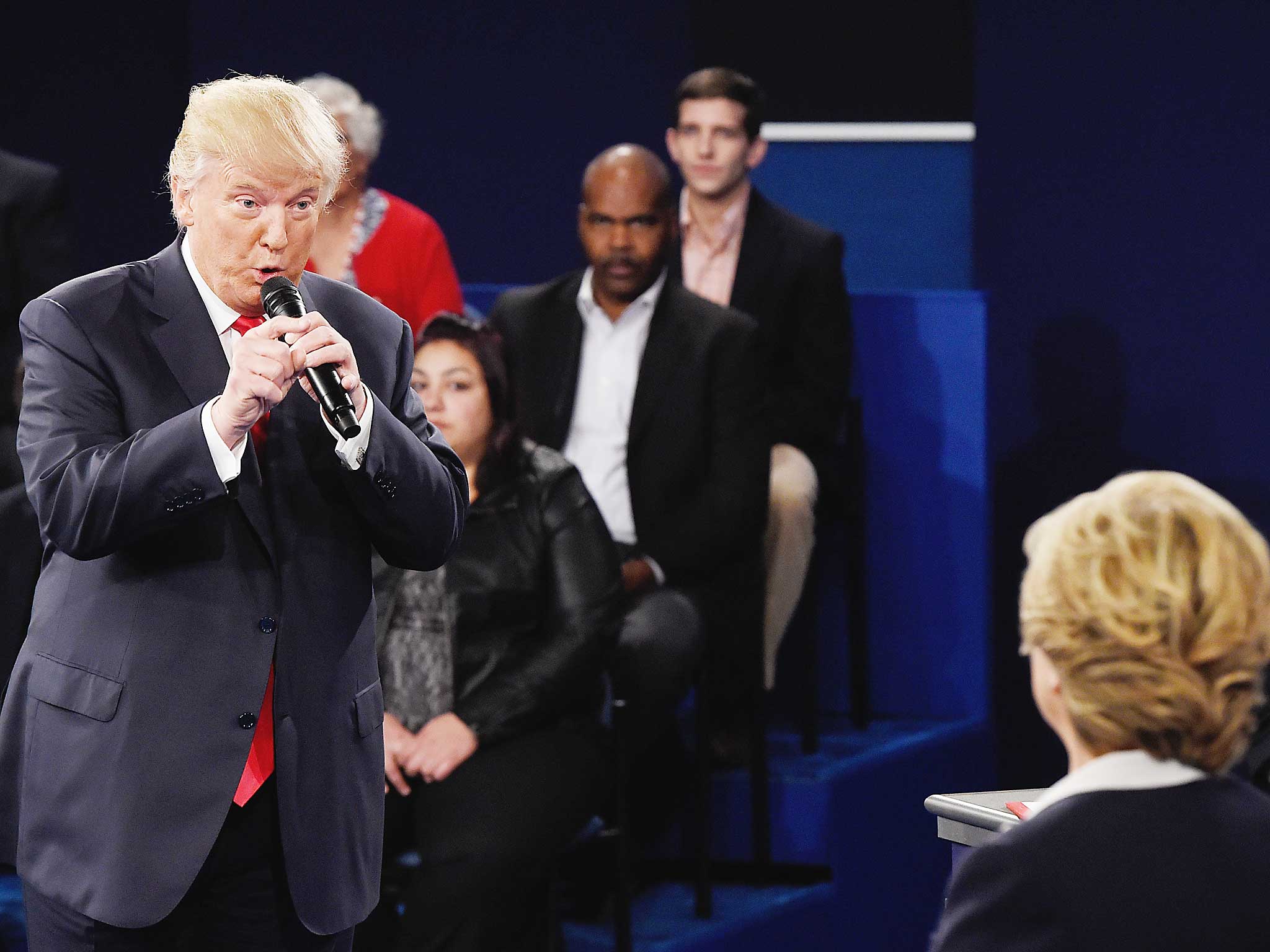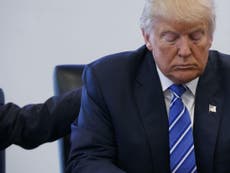As a psychologist who specialises in conspiracy theorists, this is what I can tell you about Donald Trump's bizarre beliefs
The intended audience for this kind of conspiratorial fantasy has always been the dispossessed, those who feel that America is being taken away from them. In 2016 these are predominantly white men – the one group who are never attacked by Trump

Ever since he secured the Republican Party nomination, Donald Trump has shown an obstinate refusal to “pivot” towards the centre-ground of politics, and engage in the kind of politics required to win over the ethnically and culturally diverse US electorate. This feature of Trump’s political style is most clearly manifested in the tendency to veer off message, and mix the carefully drafted speeches with improvised tirades and half-thought-through jokes and innuendos about political opponents, ethnic and religious minorities, women and the disabled; in fact, about every demographic except white male voters.
It is in these unscripted comments, delivered in town halls or in late night tweets, that Trump’s affinity for conspiracy theories is most clearly revealed. Look beyond the slogans such as “Make America great again!” or the promises of more jobs and better trade deals, and you will find a terrifying world of malign plots, machinations, corruption and murder, of America on the brink of apocalypse.
The forthcoming presidential election, he warns us, will be rigged. The mainstream media, Google, and the shady political elites in Washington will stop at nothing to prevent him from saving America. Hillary Clinton is hiding a serious neurological medical condition that affects her judgment. The Supreme Court Justice Antonin Scalia, who died in February 2016, may have been killed. Mexico is sending criminals and rapists over the border. Terrorists are hiding among Syrian refugees. The Chinese ‘invented’ climate change to undermine the competitiveness of US industry. And of course, then there’s the best known of Trump’s conspiracy theories, one which in many ways launched his political career in 2008: the claim that the then Senator Barack Obama was not born on US soil, and was therefore precluded from running for the office of president.
One might wonder whether Donald Trump actually believes these claims, or whether he is simply using them as a political tool. In many ways this does not matter. What matters is that a serious contender for American presidency is running a campaign based on fear, suspicion and serious paranoia.
Of course, not all of Trump’s supporters endorse these conspiracy theories. Many Americans will vote for Tump because they see him as an alternative to established political parties and someone who promises to “shake up Washington”. But the fact that they don’t see Trump’s conspiracy theories, not even those with racist undertones, as disqualifying suggests just how widely this kind of reasoning is regarded as an acceptable in American society. This is a clear illustration of the fuzziness of the boundaries that separate legitimate distrust of politics from wild-eyed conspiracy theories.
Conspiracy theorising has a long history in American politics. Since the early nineteenth century, political movements have been forged around the idea that different groups – the Illuminati, Freemasons, Catholics, Jews, or communists – are plotting against America, and are seeking to undermine its traditions and way of life. The intended audience for this kind of conspiratorial fantasy has always been the dispossessed, those who feel that America is being taken away from them. In 2016 these are predominantly white men, threatened by changing demographics in America, and by the loss of job security and economic power after the crisis of 2008.
The appeal of conspiracy theories lies in the fact that they reduce complex social issues to a simple, emotionally charged tale of good and evil. What is more, conspiracy theories are always underpinned by a comforting sense of naïve optimism. No matter how strong the adversary is, or how tight their grip on power appears to be, they are always seen also as vulnerable, desperate and approaching final defeat. Thus, many of Trump’s followers seek solace in the belief that his electoral success and the purity of their own convictions are all that is required for the liberal establishment to crumble, and for America to be “great again”.
Whatever the outcome of next month’s elections, those seduced by conspiracy theories will be the losers. The politics of the illusory can never adequately address the causes of their in many ways legitimate feelings of alienation and dispossession.
Unreasonable expectations and unattainable goals drummed up by Trump’s populist rhetoric can only drive his supporters away from political institutions and democratic processes through which their interests can be legitimately articulated and pursued. Most importantly, conspiracy theories, because they can never bring about resolution, invariably breed resentment, anger, bitterness, - and more conspiracy theories.
Jovan Byford is a senior lecturer in Psychology at the Open University and author of Conspiracy Theories: A Critical Introduction


Join our commenting forum
Join thought-provoking conversations, follow other Independent readers and see their replies